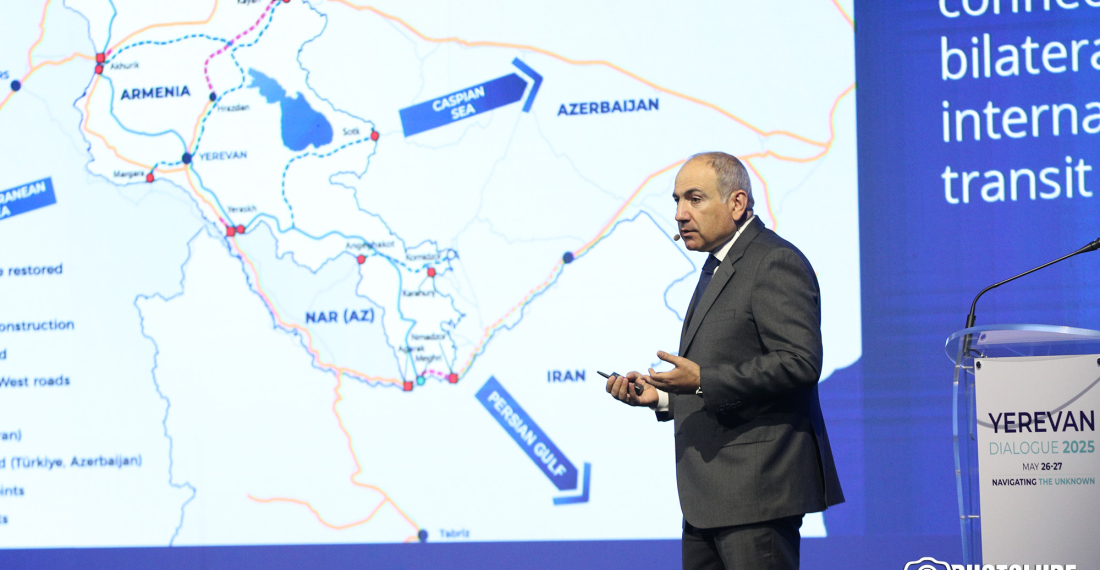Armenian Prime Minister Nikol Pashinyan told the Yerevan Dialogue that “sustainable and lasting peace between Armenia and Azerbaijan is not only possible, but within reach” as he delivered an update on the current status of peace talks to participants of the 2nd annual forum on Monday. Negotiations over a draft agreement were completed in March, and Armenia and Azerbaijan indicated their willingness to sign it.
The process was delayed with Azerbaijan attaching two additional preconditions: the dissolution of the OSCE Minsk Group, established in 1992 to facilitate a peaceful resolution to the Nagorno-Karabakh conflict, and a demand that Armenia amend its constitution, which would require a nationwide referendum.
At the forum, Pashinyan said dissolving the Minsk Group is acceptable to Armenia, “as long as Azerbaijan’s intention for doing so is not to export the conflict onto Armenian territory,” pointing to Baku’s rhetoric in recent years calling large parts of Armenia “Western Azerbaijan.” He refuted accusations from Baku that Armenia’s constitution has claims on Azerbaijan, citing a ruling of the Armenian Constitutional Court last September to that effect.
Pashinyan acknowledged that neighbours must not have territorial claims against each other and argued that this concern would best be addressed by swiftly signing the agreement. The agreement reaffirms mutual recognition of territorial integrity and a commitment not to make territorial claims in the future. Pashinyan proposed that both sides sign the finalized agreement alongside an application to dissolve the OSCE Minsk Group. He noted that while Armenia also has concerns about territorial claims in Azerbaijan’s constitution, it has not raised the issue separately, as the agreement would settle those concerns.
Pashinyan also promoted Armenia’s strategic position through his “Crossroads of Peace” initiative, aimed at opening communication and transport links throughout the South Caucasus. He called it “a very important project for overcoming the global supply chain crisis, because when our roads with Azerbaijan and Turkey are open, it will provide another opportunity for connectivity between east and west, north and south.”
The Yerevan Dialogue was also addressed by Slovakian Prime Minister Robert Fico, on his first visit to Armenia. Fico said he also supports closer ties between Armenia and the EU along with the presence of the EU’s observation mission in Armenia, which Baku has demanded must leave. According to Fico, “a peaceful settlement with Azerbaijan will send a powerful message to Europe that conflicts can be resolved through diplomatic dialogue.”
The Yerevan Dialogue first held in 2024 serves as a platform for stakeholders including policymakers,, academics, civil society and the private sector to discuss and develop solutions to global challenges.






